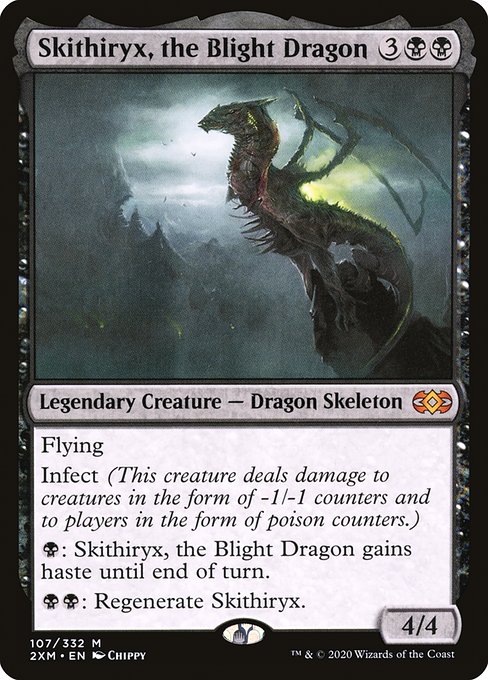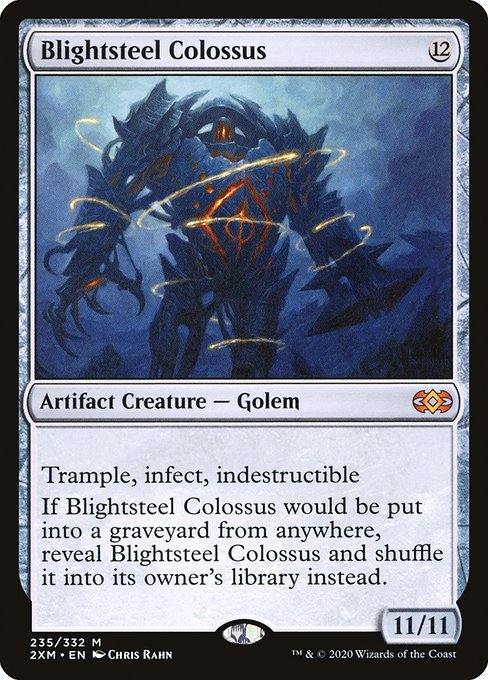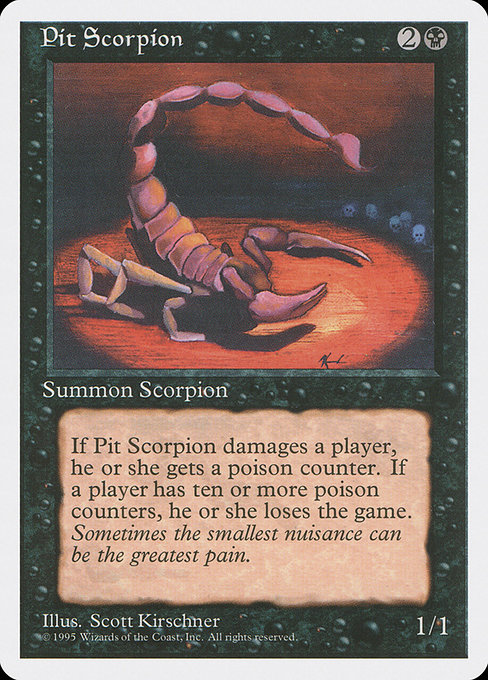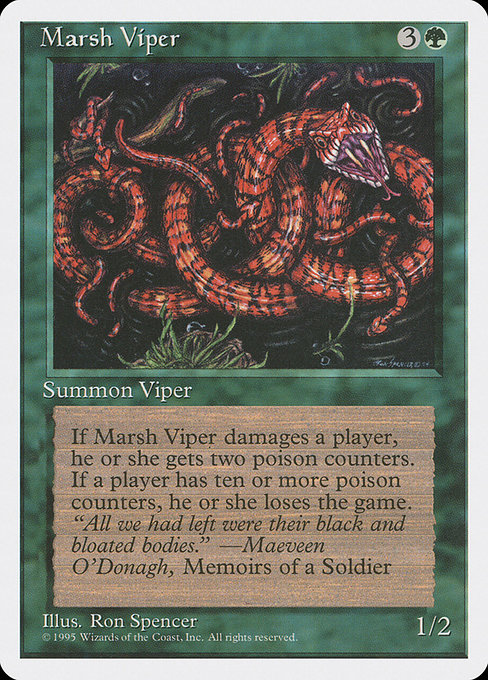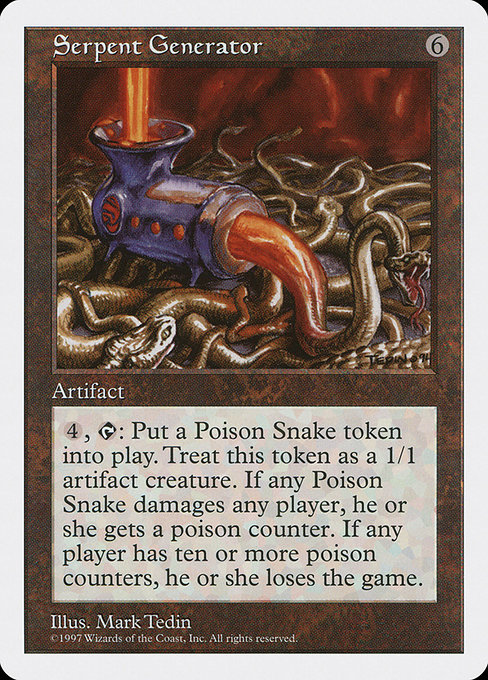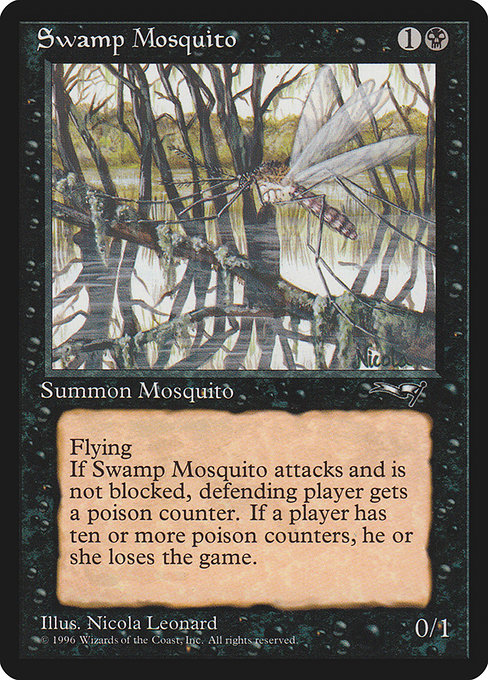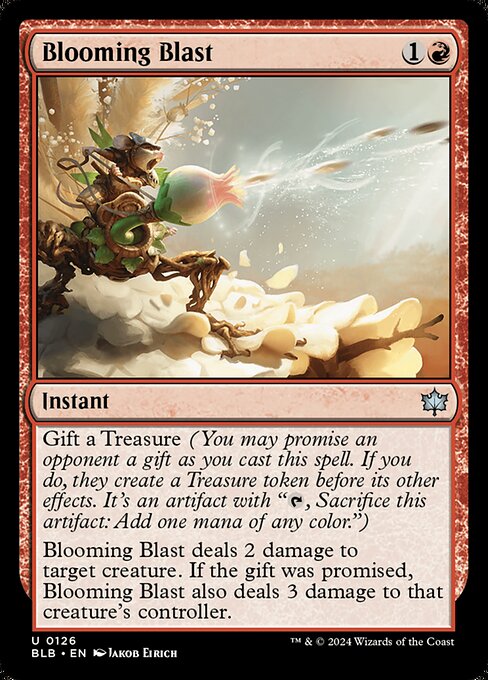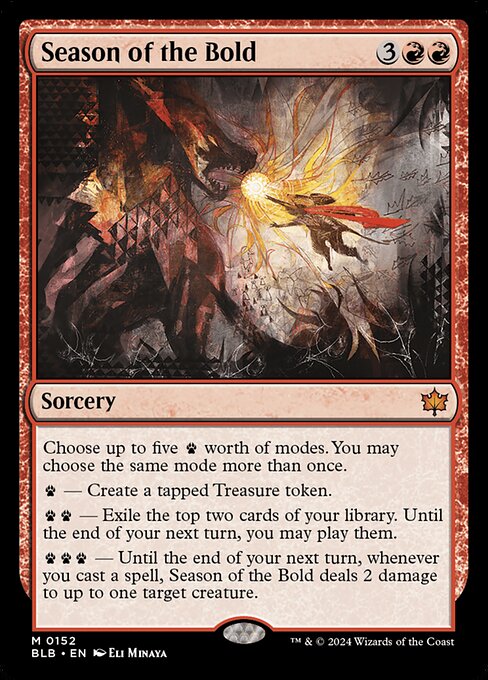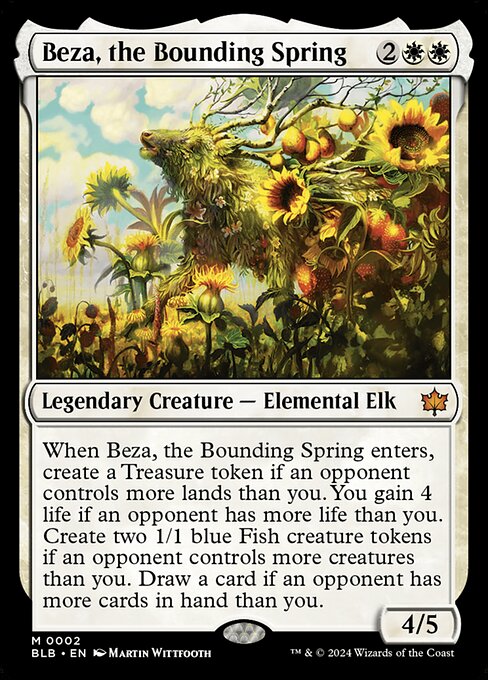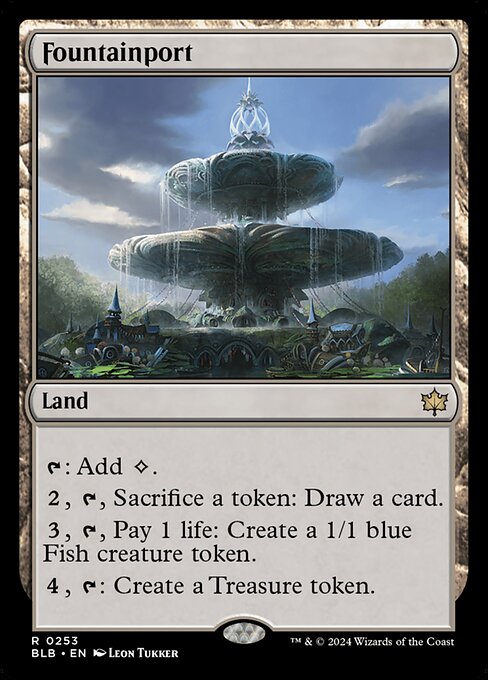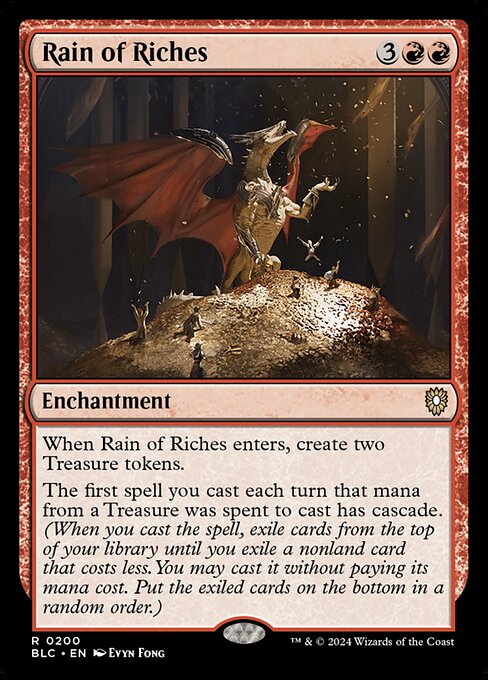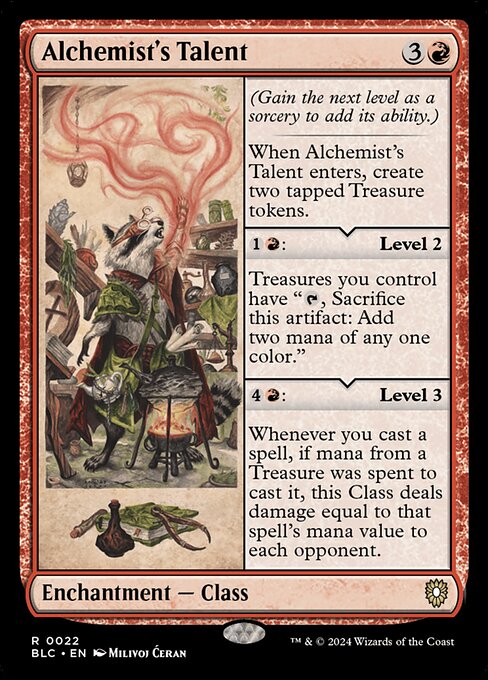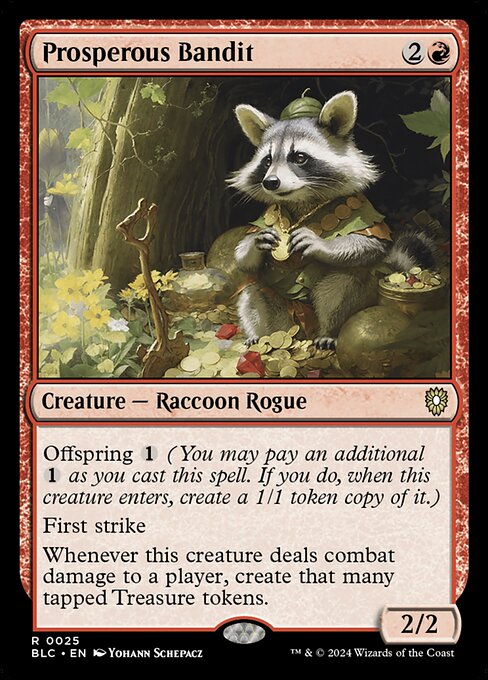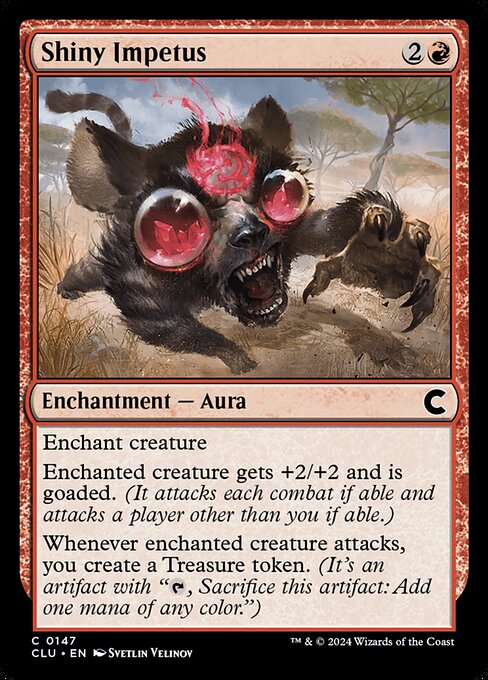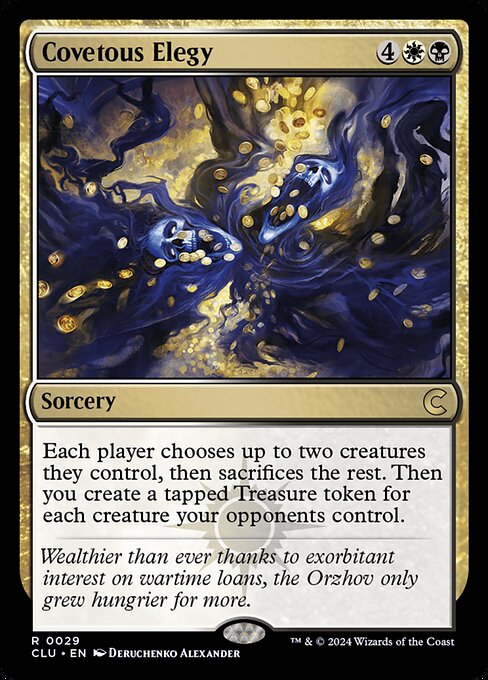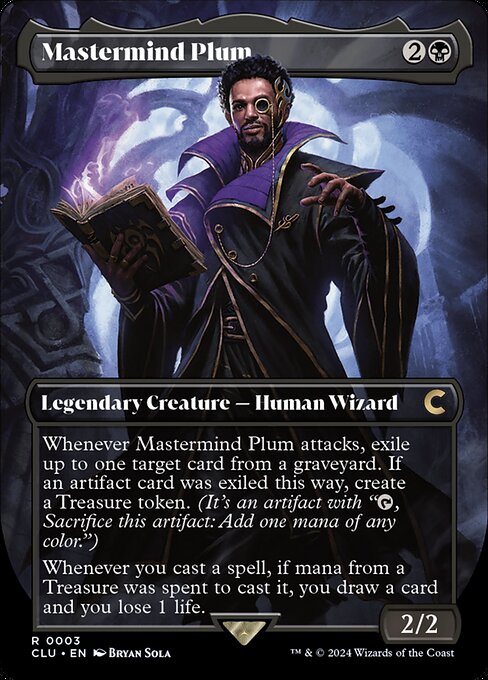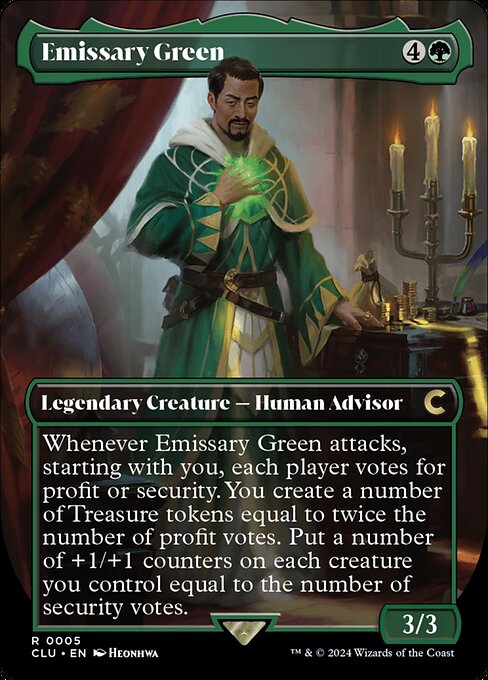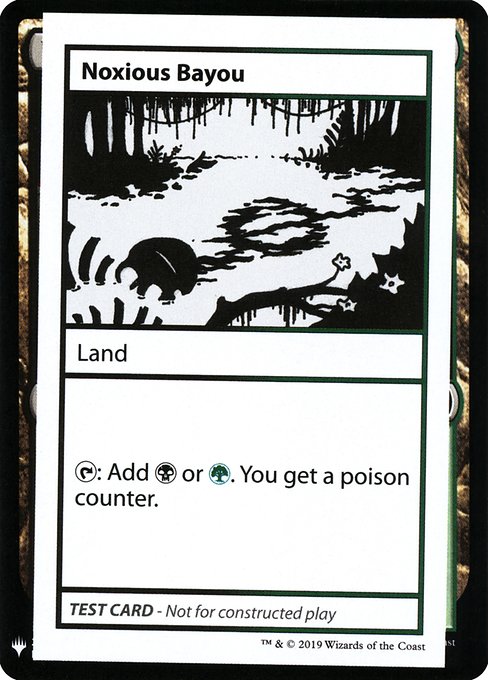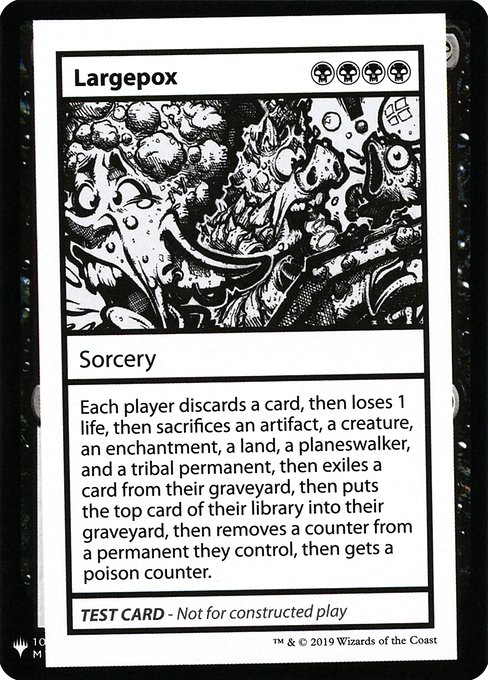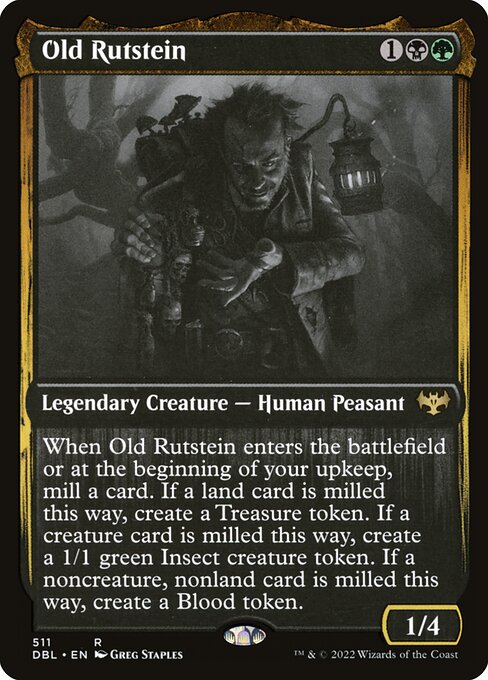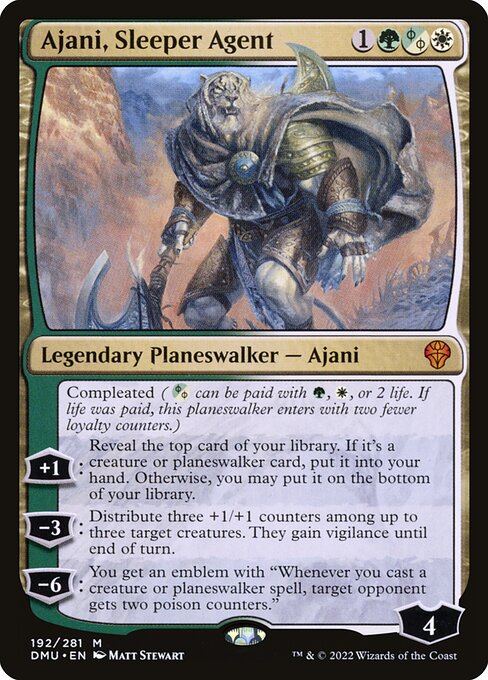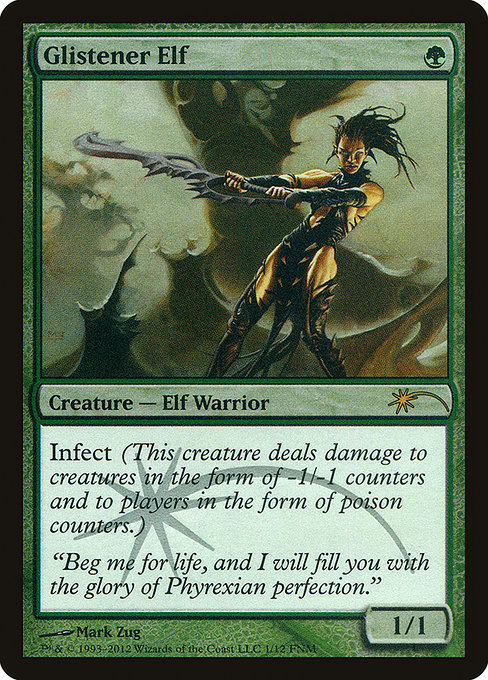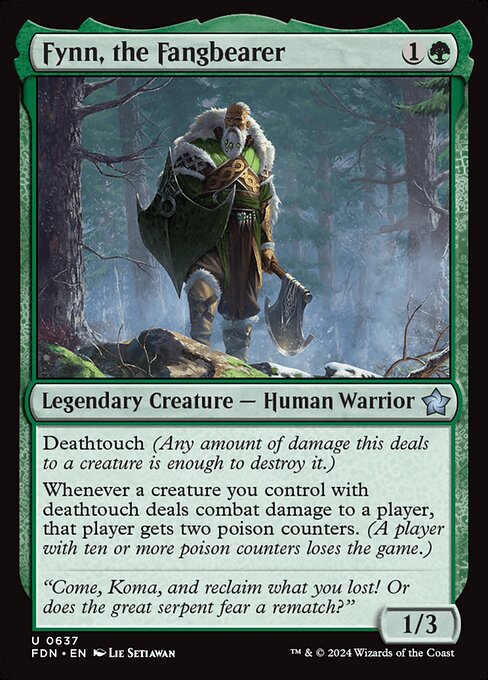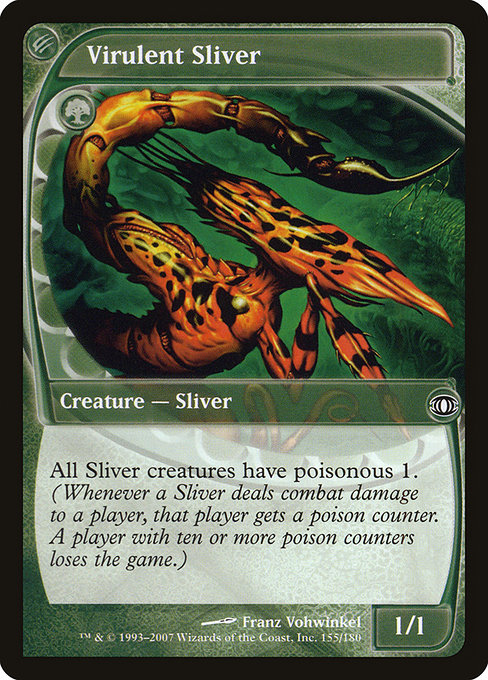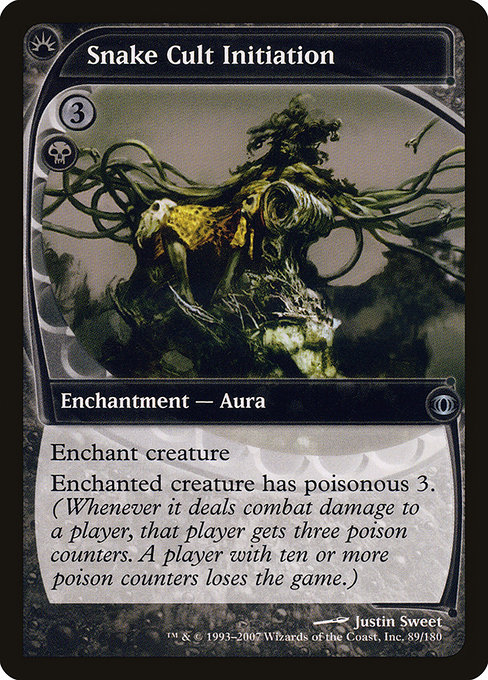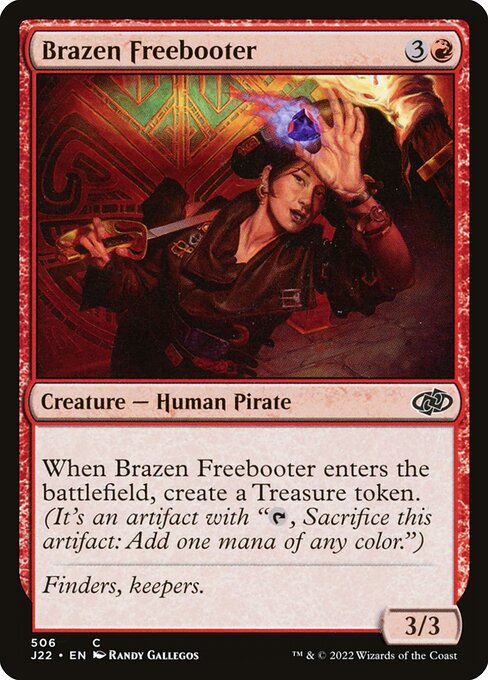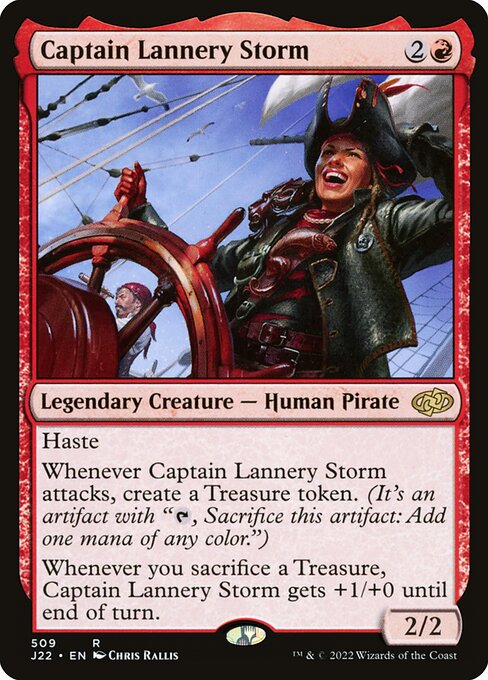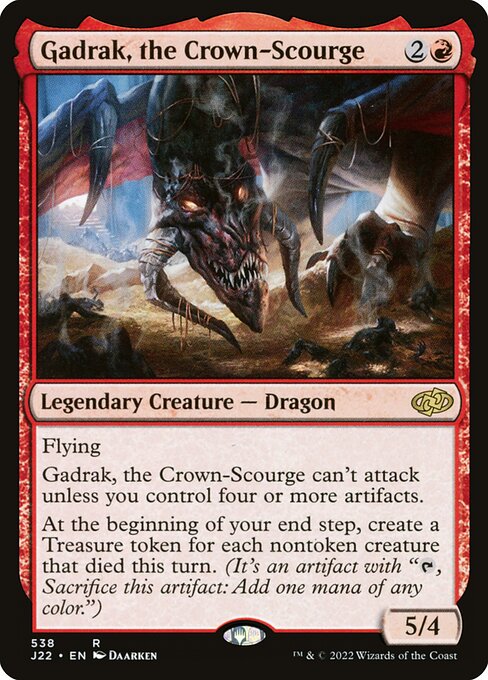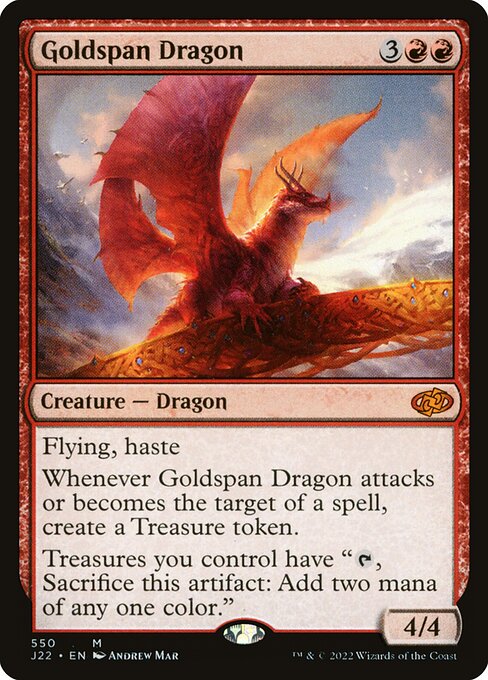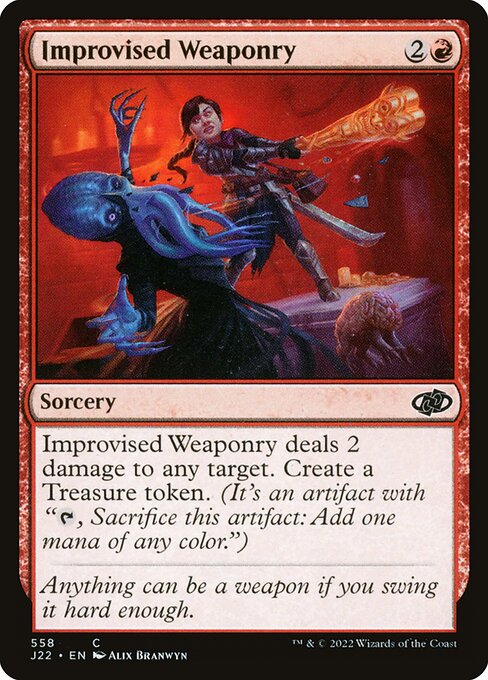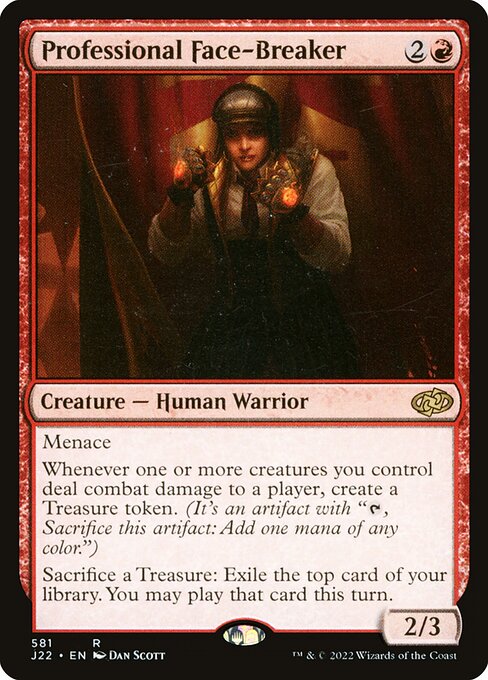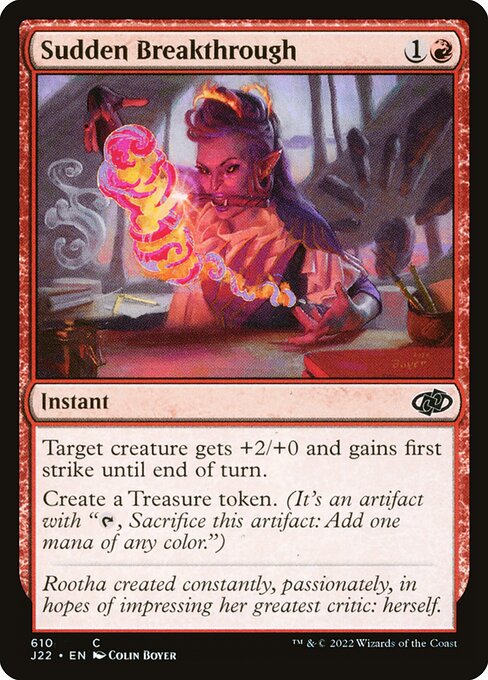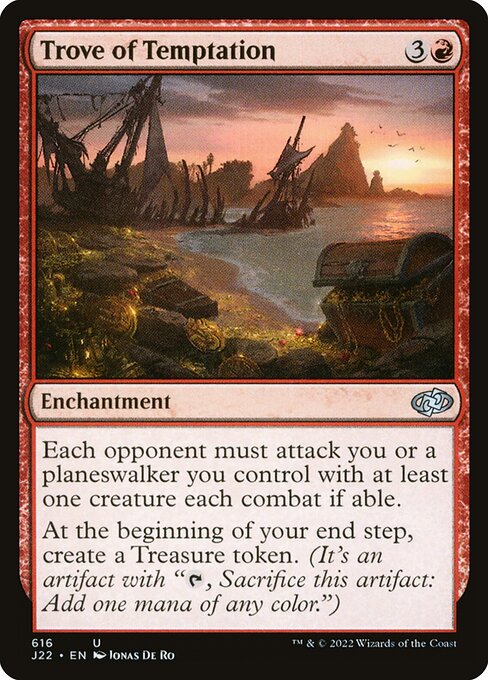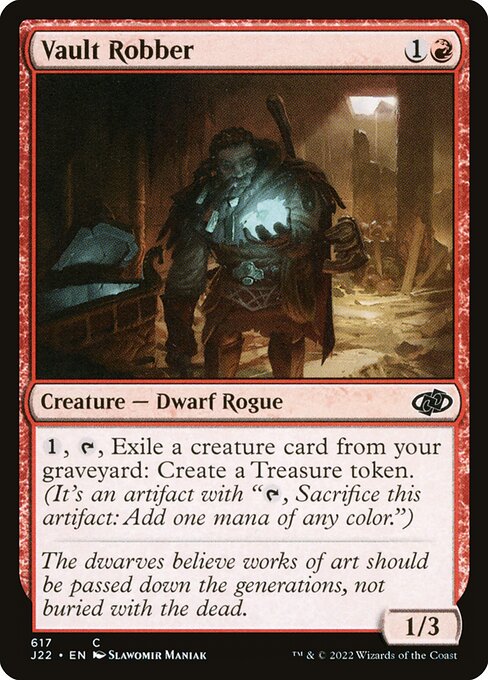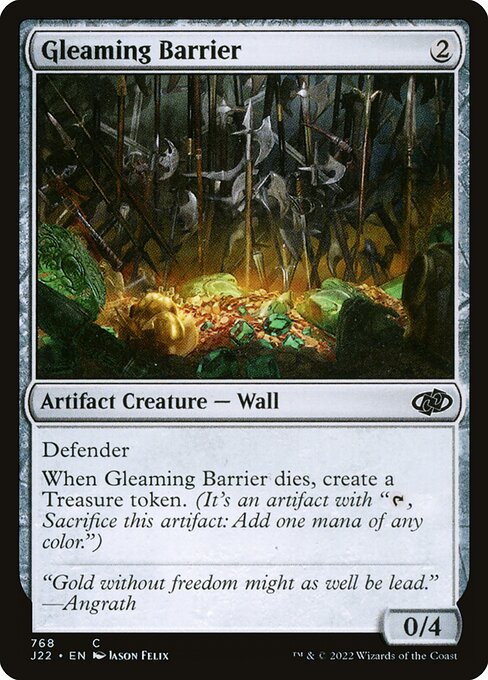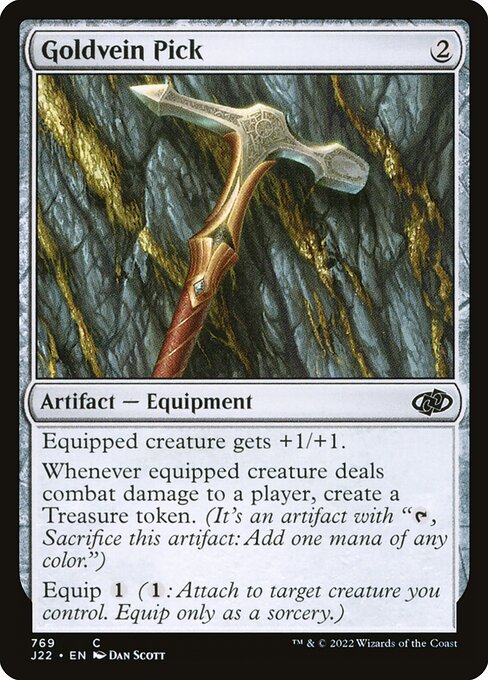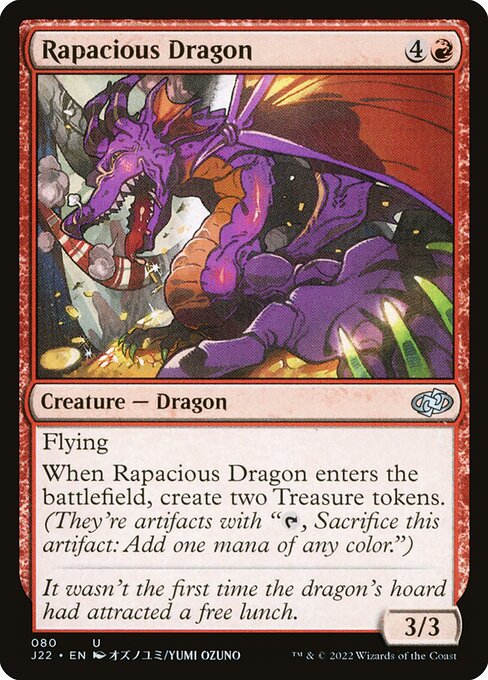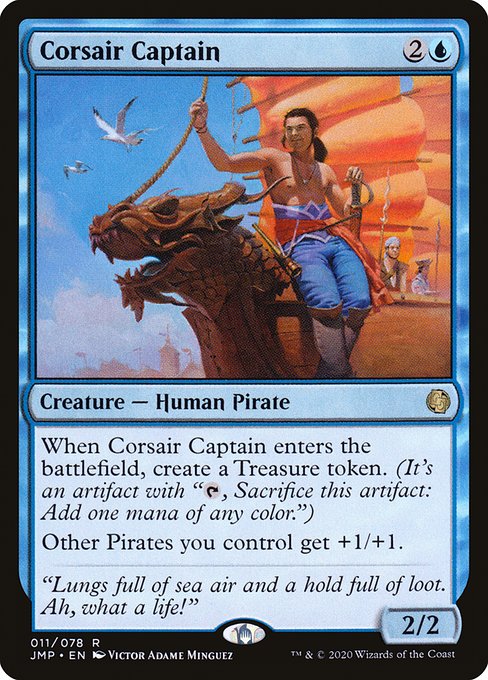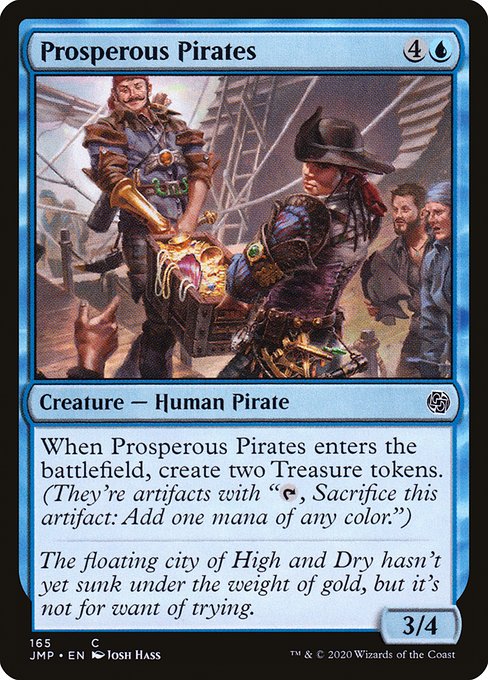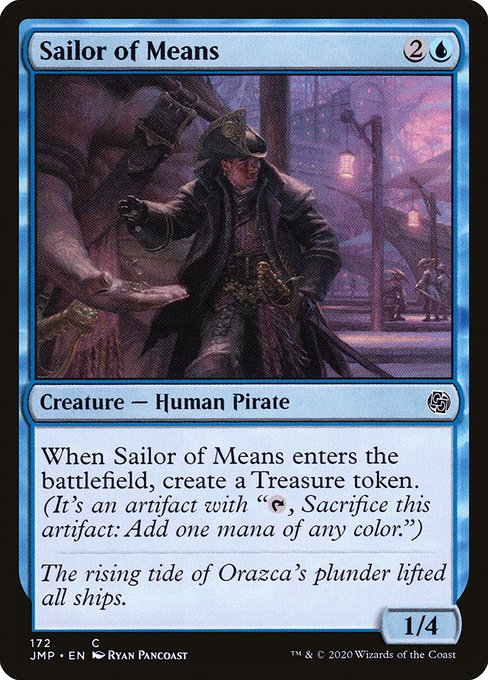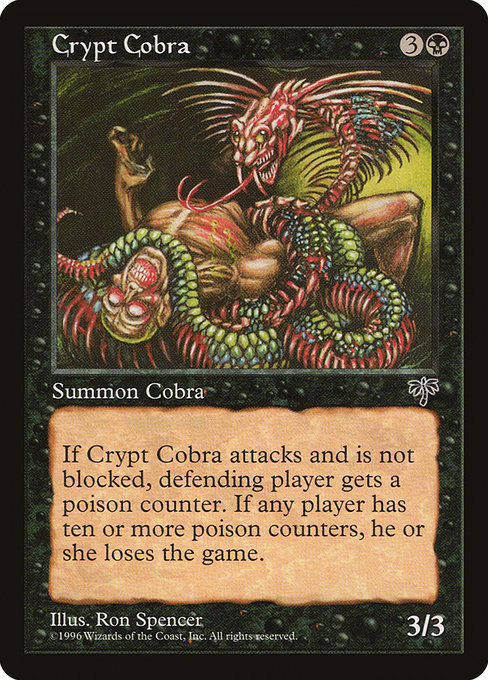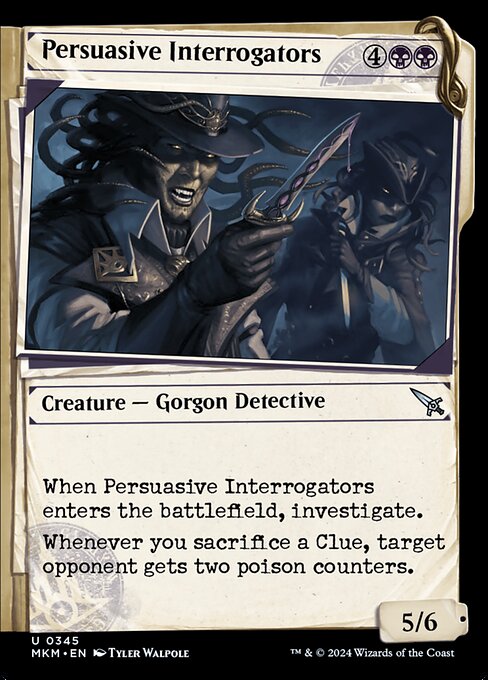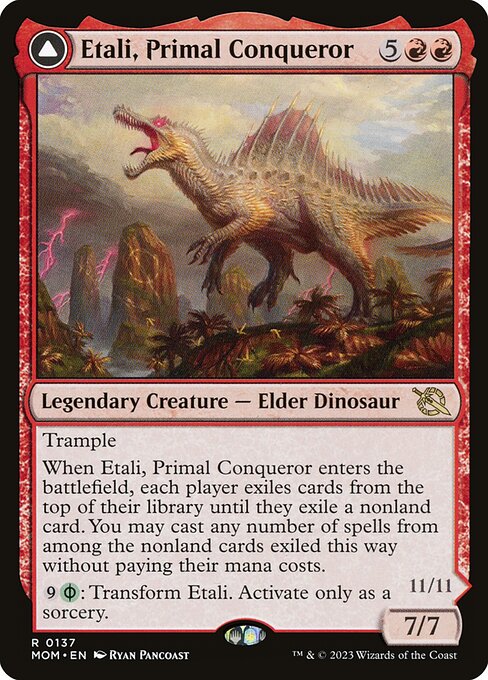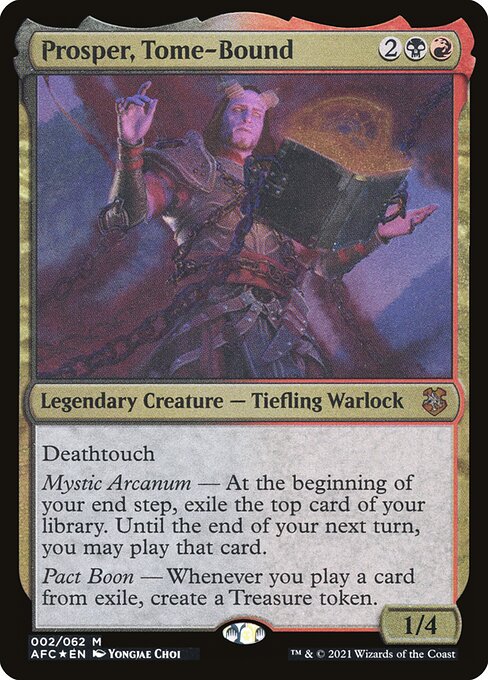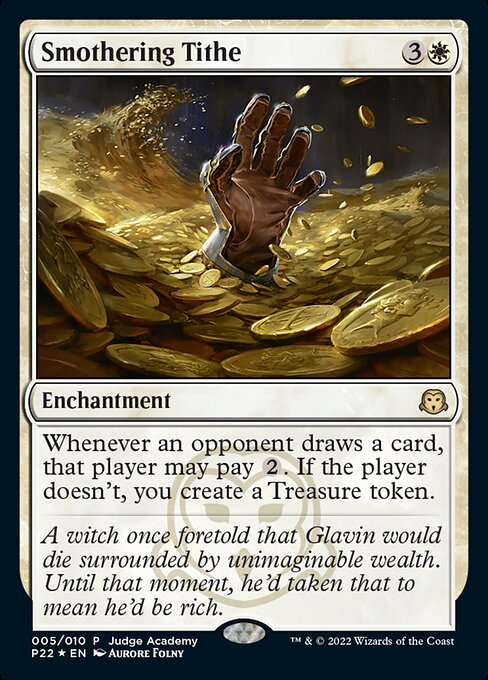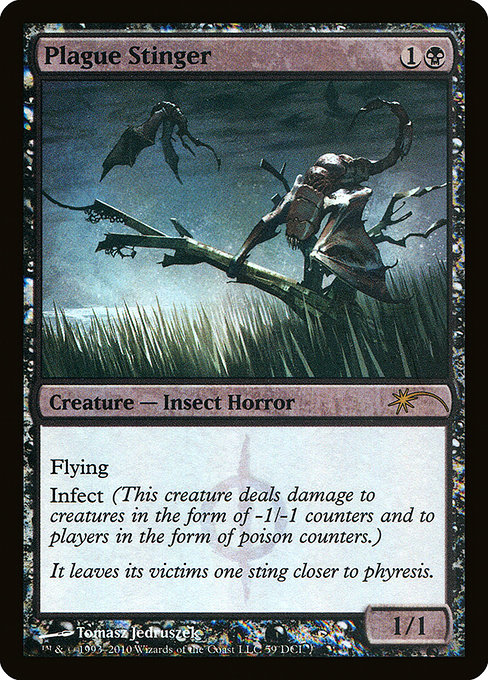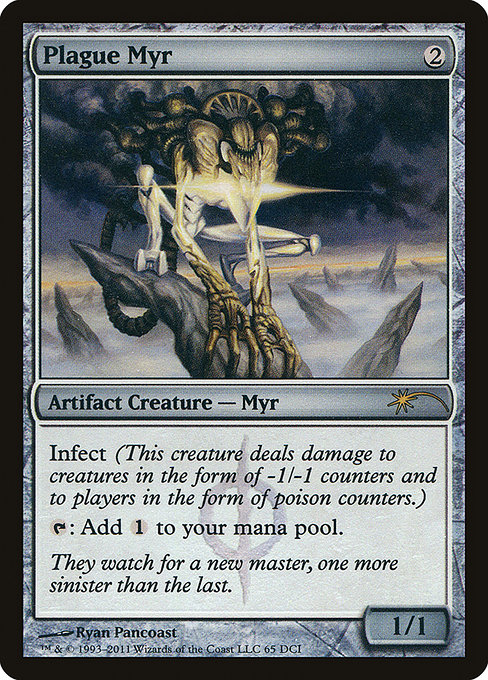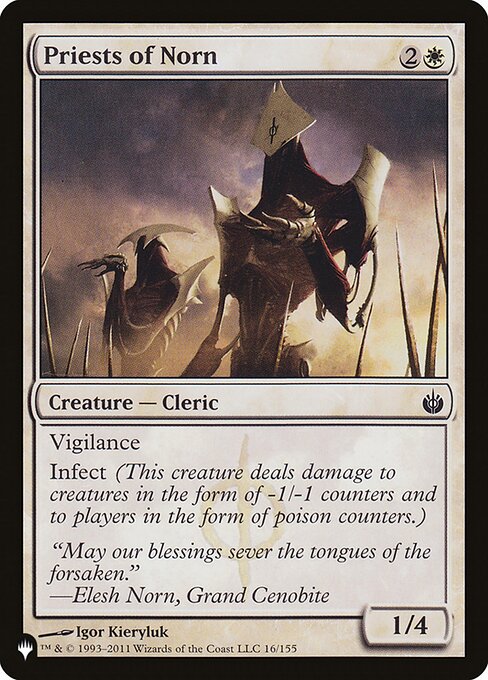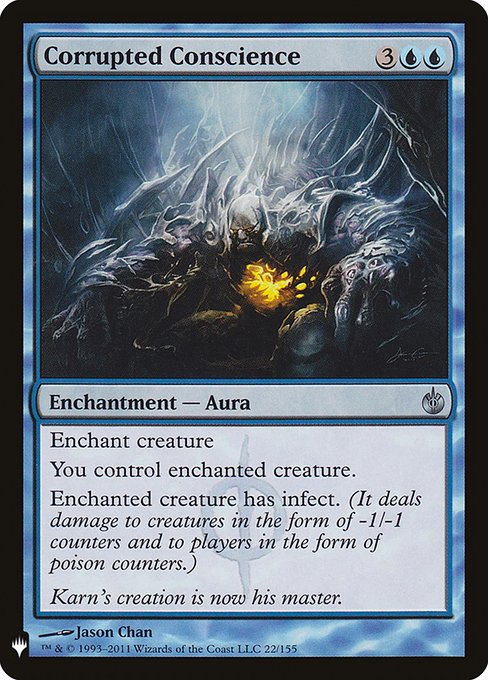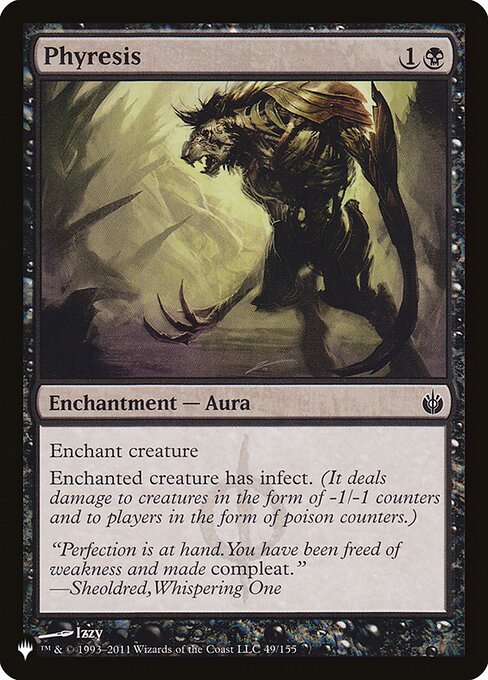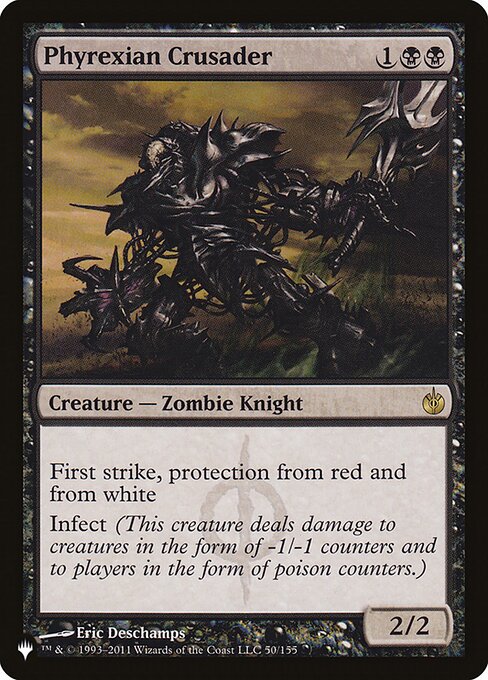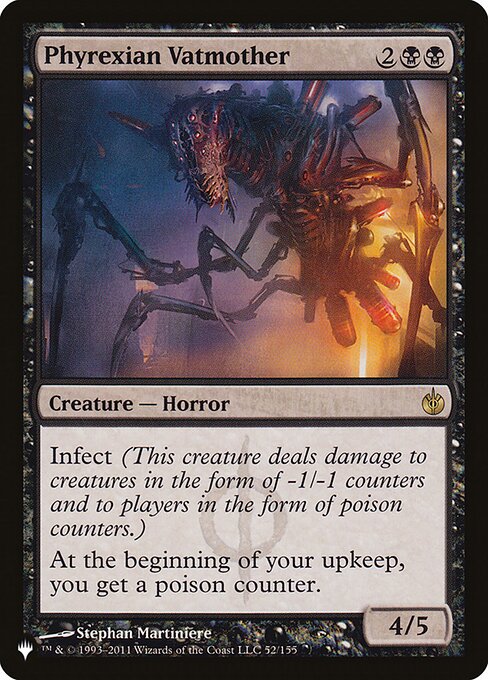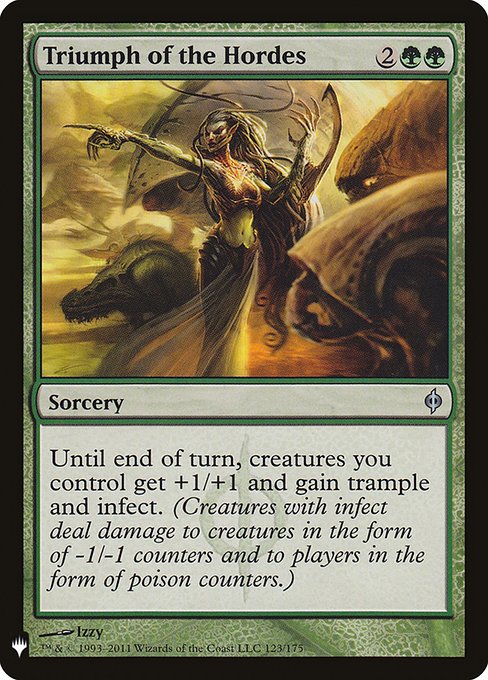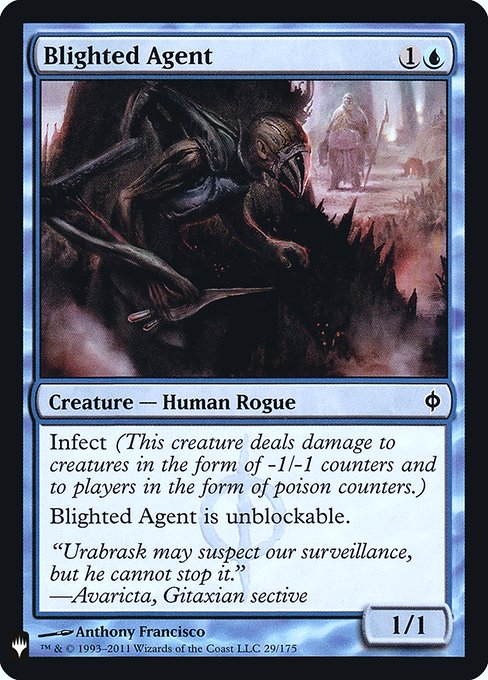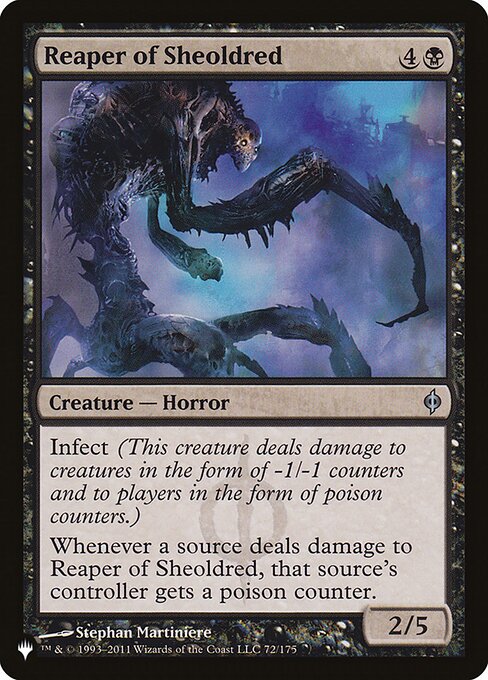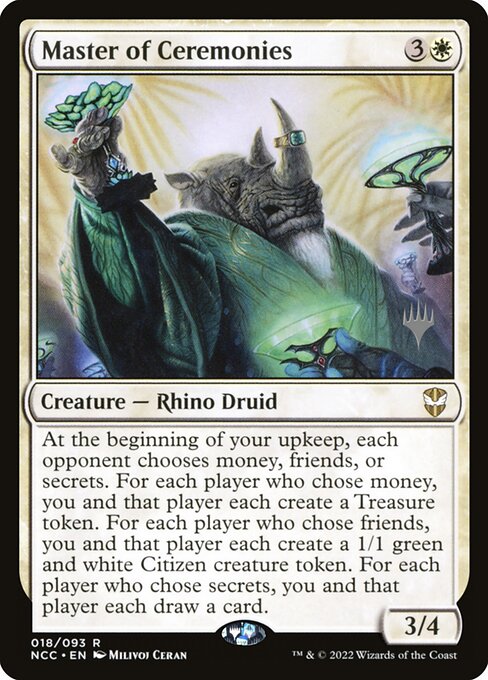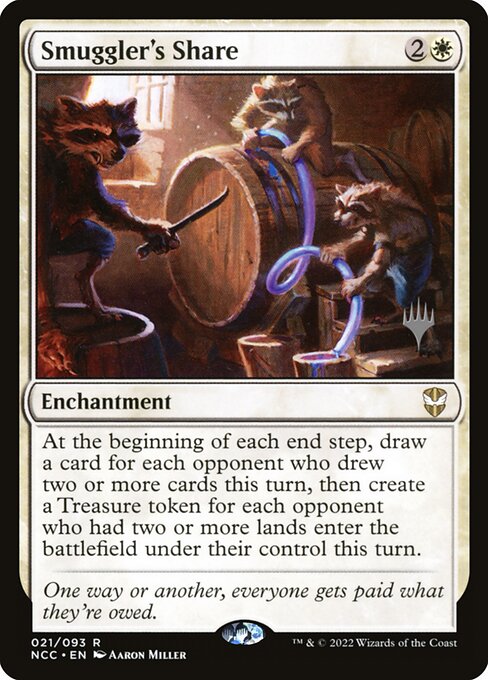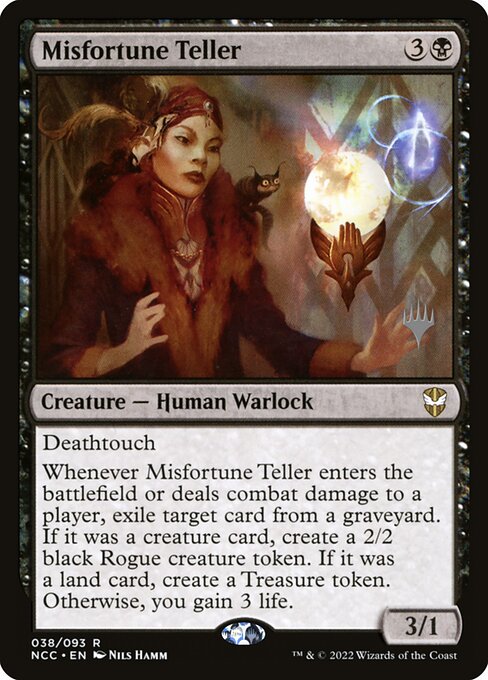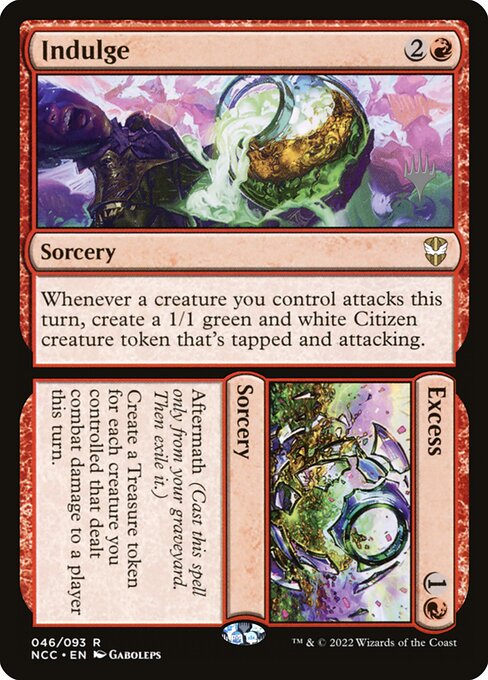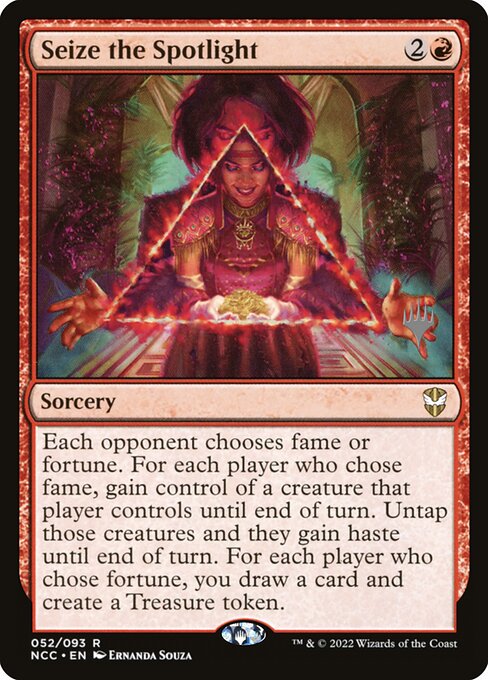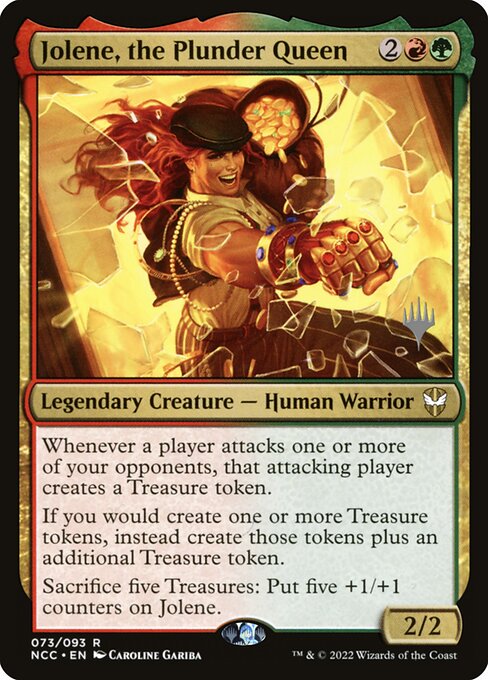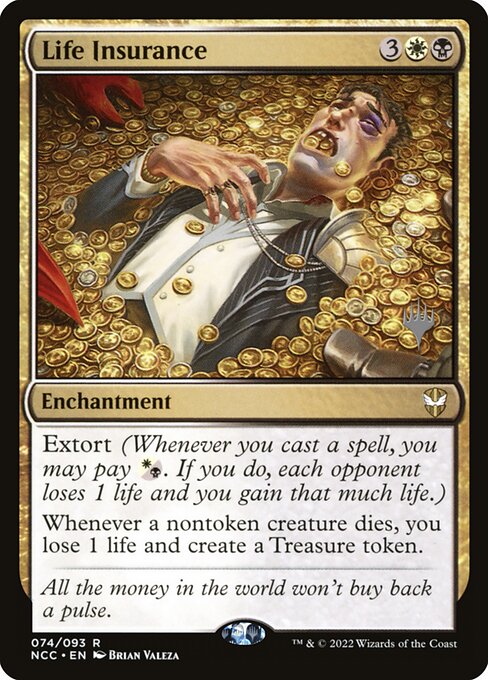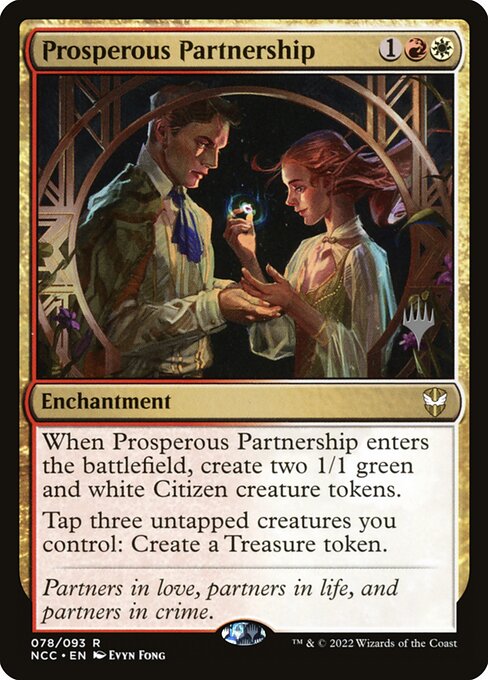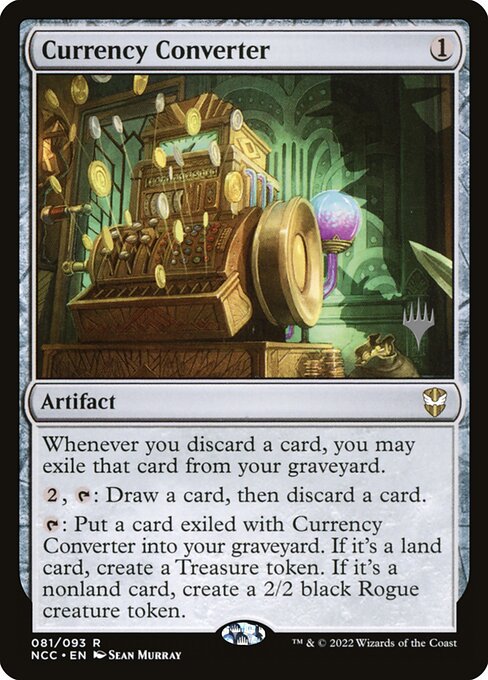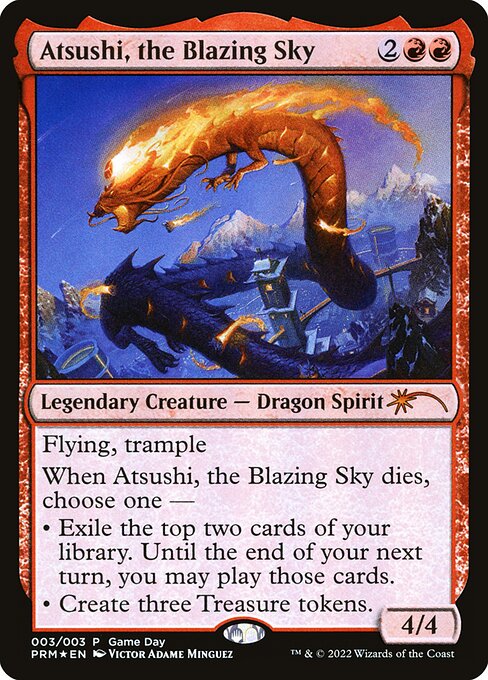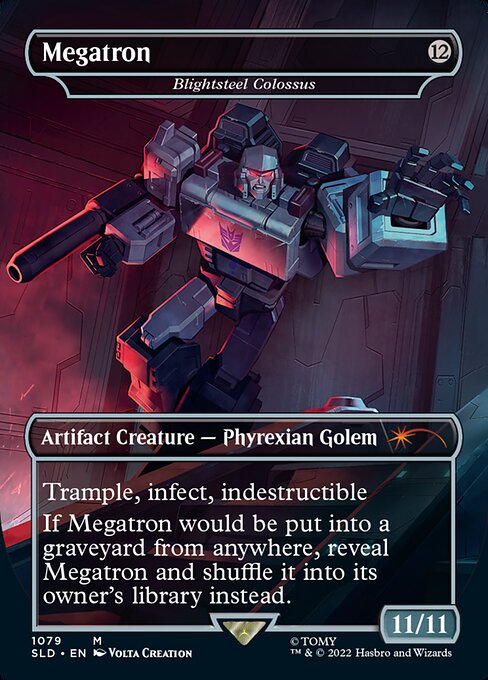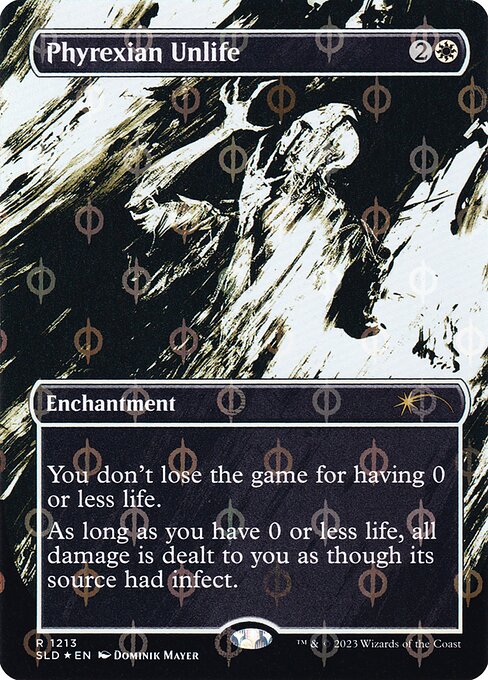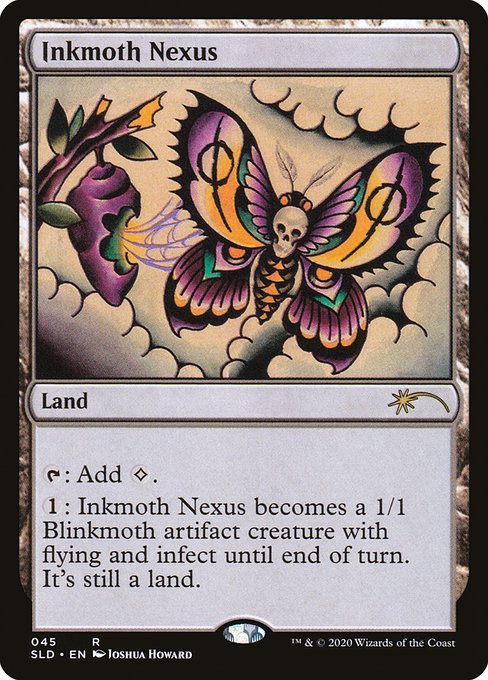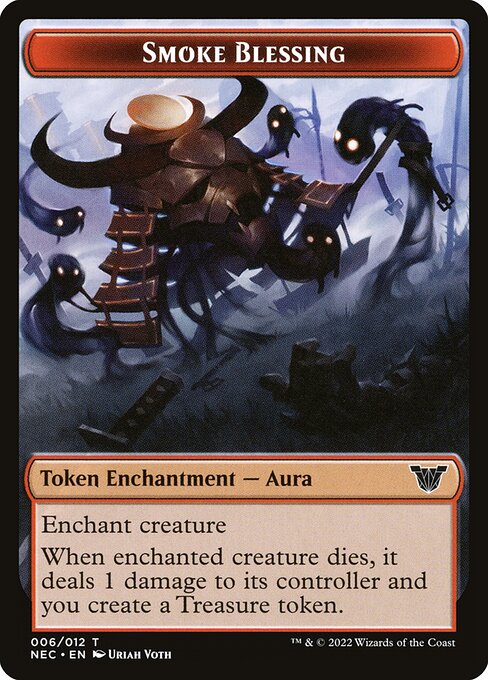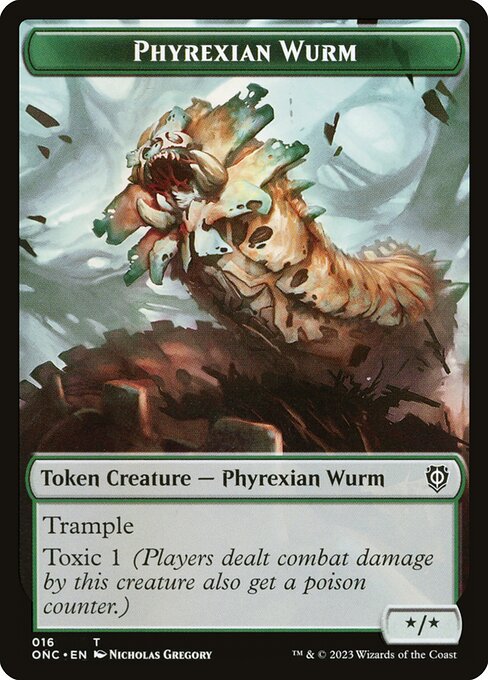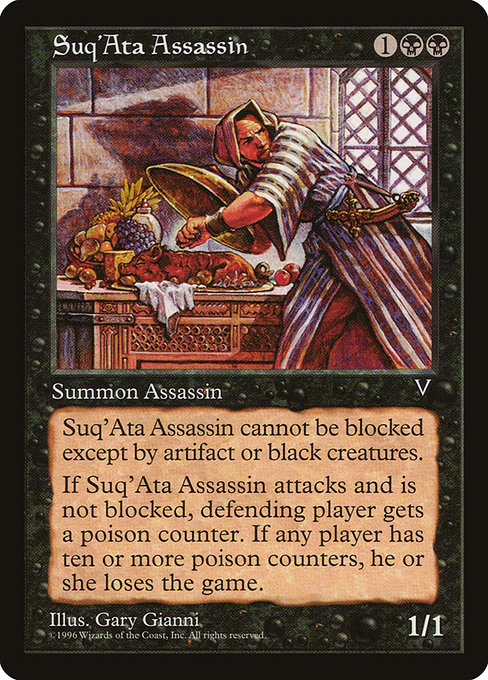Bloodroot Apothecary
Creature — Squirrel Druid
Toxic 2 (Players dealt combat damage by this creature also get two poison counters. A player with ten or more poison counters loses the game.)
When Bloodroot Apothecary enters, you and target opponent each create a Treasure token.
(Whenever an opponent sacrifices a noncreature token, that player gets two poison counters.)
When Bloodroot Apothecary enters, you and target opponent each create a Treasure token.
(Whenever an opponent sacrifices a noncreature token, that player gets two poison counters.)
3/3
standard
future
historic
gladiator
pioneer
explorer
modern
legacy
pauper
vintage
penny
commander
brawl
alchemy
paupercommander
duel
oldschool
premodern
Rulings
Any other effects of that damage, such as life gain from lifelink, still apply.
If the target player is an illegal target as Bloodroot Apothecary’s second ability tries to resolve, it won’t resolve and none of its effects will happen. No player will create a Treasure token.
A player with ten or more poison counters loses the game. This is a state-based action and doesn’t use the stack. In other words, it happens immediately and players can’t respond to it, just like a player losing the game due to having 0 or less life.
Damage dealt by a creature with toxic grants the same number of counters regardless of how much damage is dealt. Notably, if a replacement effect modifies the damage in some way (such as that of Gratuitous Violence), the number of counters given remains unchanged.
Conversely, replacement effects that apply to the number of counters put on a player can modify the counters placed this way. For example, Vorinclex, Monstrous Raider’s last two abilities can apply to counters placed this way.
Toxic doesn’t change the amount of combat damage a creature deals. For example, if a 2/2 creature with toxic 1 deals combat damage to a player, that creature will deal 2 damage. The results of that damage are the player loses 2 life and gets a poison counter.
If a creature with toxic deals combat damage to a creature or planeswalker, or if it deals noncombat damage, toxic has no effect and no player gets poison counters.
Multiple instances of toxic are cumulative. For example, if a creature has toxic 2 and gains toxic 1 due to another effect, combat damage that creature deals to a player will cause that player to get three poison counters.
If the target player is an illegal target as Bloodroot Apothecary’s second ability tries to resolve, it won’t resolve and none of its effects will happen. No player will create a Treasure token.
A player with ten or more poison counters loses the game. This is a state-based action and doesn’t use the stack. In other words, it happens immediately and players can’t respond to it, just like a player losing the game due to having 0 or less life.
Damage dealt by a creature with toxic grants the same number of counters regardless of how much damage is dealt. Notably, if a replacement effect modifies the damage in some way (such as that of Gratuitous Violence), the number of counters given remains unchanged.
Conversely, replacement effects that apply to the number of counters put on a player can modify the counters placed this way. For example, Vorinclex, Monstrous Raider’s last two abilities can apply to counters placed this way.
Toxic doesn’t change the amount of combat damage a creature deals. For example, if a 2/2 creature with toxic 1 deals combat damage to a player, that creature will deal 2 damage. The results of that damage are the player loses 2 life and gets a poison counter.
If a creature with toxic deals combat damage to a creature or planeswalker, or if it deals noncombat damage, toxic has no effect and no player gets poison counters.
Multiple instances of toxic are cumulative. For example, if a creature has toxic 2 and gains toxic 1 due to another effect, combat damage that creature deals to a player will cause that player to get three poison counters.
Rulings
Any other effects of that damage, such as life gain from lifelink, still apply.
If the target player is an illegal target as Bloodroot Apothecary’s second ability tries to resolve, it won’t resolve and none of its effects will happen. No player will create a Treasure token.
A player with ten or more poison counters loses the game. This is a state-based action and doesn’t use the stack. In other words, it happens immediately and players can’t respond to it, just like a player losing the game due to having 0 or less life.
Damage dealt by a creature with toxic grants the same number of counters regardless of how much damage is dealt. Notably, if a replacement effect modifies the damage in some way (such as that of Gratuitous Violence), the number of counters given remains unchanged.
Conversely, replacement effects that apply to the number of counters put on a player can modify the counters placed this way. For example, Vorinclex, Monstrous Raider’s last two abilities can apply to counters placed this way.
Toxic doesn’t change the amount of combat damage a creature deals. For example, if a 2/2 creature with toxic 1 deals combat damage to a player, that creature will deal 2 damage. The results of that damage are the player loses 2 life and gets a poison counter.
If a creature with toxic deals combat damage to a creature or planeswalker, or if it deals noncombat damage, toxic has no effect and no player gets poison counters.
Multiple instances of toxic are cumulative. For example, if a creature has toxic 2 and gains toxic 1 due to another effect, combat damage that creature deals to a player will cause that player to get three poison counters.
If the target player is an illegal target as Bloodroot Apothecary’s second ability tries to resolve, it won’t resolve and none of its effects will happen. No player will create a Treasure token.
A player with ten or more poison counters loses the game. This is a state-based action and doesn’t use the stack. In other words, it happens immediately and players can’t respond to it, just like a player losing the game due to having 0 or less life.
Damage dealt by a creature with toxic grants the same number of counters regardless of how much damage is dealt. Notably, if a replacement effect modifies the damage in some way (such as that of Gratuitous Violence), the number of counters given remains unchanged.
Conversely, replacement effects that apply to the number of counters put on a player can modify the counters placed this way. For example, Vorinclex, Monstrous Raider’s last two abilities can apply to counters placed this way.
Toxic doesn’t change the amount of combat damage a creature deals. For example, if a 2/2 creature with toxic 1 deals combat damage to a player, that creature will deal 2 damage. The results of that damage are the player loses 2 life and gets a poison counter.
If a creature with toxic deals combat damage to a creature or planeswalker, or if it deals noncombat damage, toxic has no effect and no player gets poison counters.
Multiple instances of toxic are cumulative. For example, if a creature has toxic 2 and gains toxic 1 due to another effect, combat damage that creature deals to a player will cause that player to get three poison counters.
Votre collection ? vos decks ?
Envie de gérer votre collection et/ou créer des decks ?
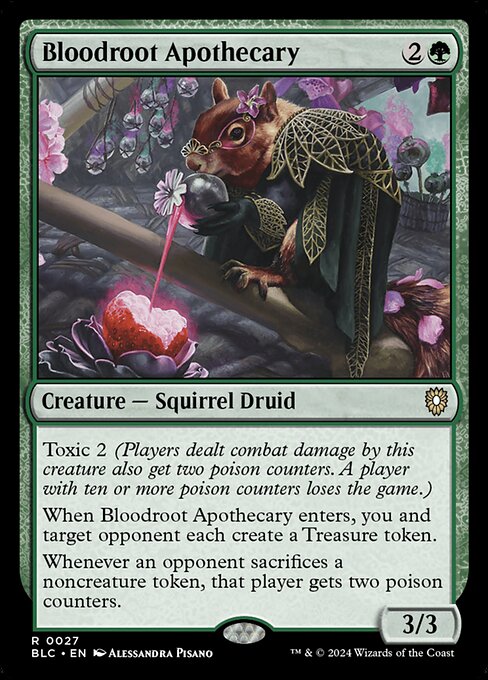

 0
0
 7.80€
7.80€

